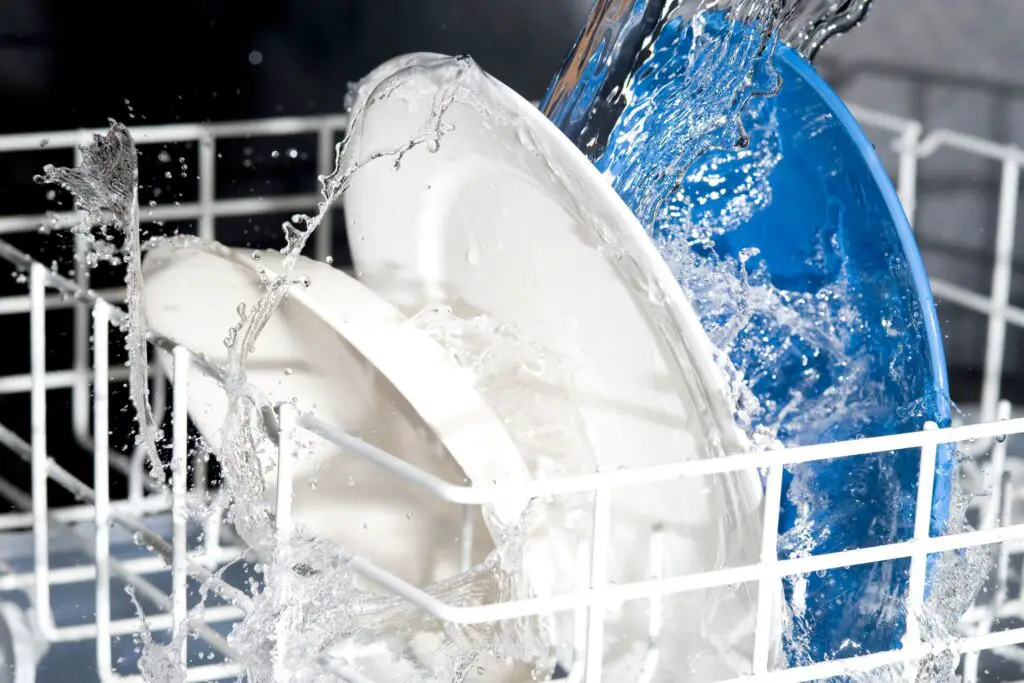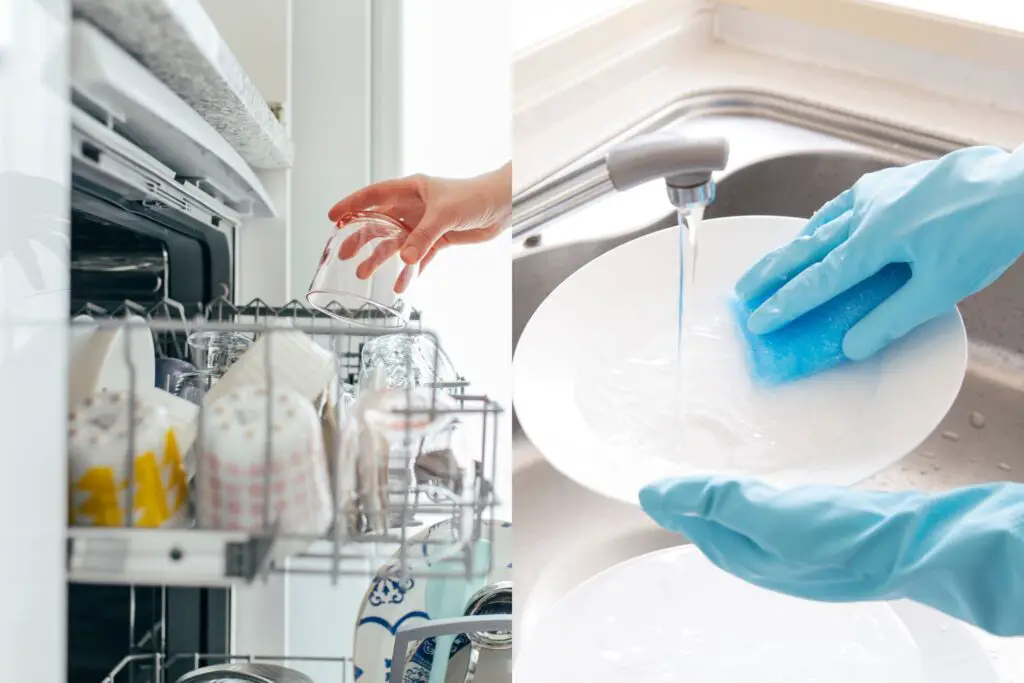Originally Created on: April 5, 2023 @ 9:45 am
Does a portable dishwasher need hot water? Have you wondered? If so, then you came to the right place.
As more and more people are looking for ways to make their lives easier, portable dishwashers have become increasingly popular. While they don’t take up much space, it can be difficult to figure out how they work.
In this blog post, we’ll discuss whether or not a portable dishwasher needs hot water in order to operate optimally.
We’ll also talk about other factors that may affect the performance of your appliance and tips on making sure it runs properly. So read on if you want to get the most from your new investment.
Also Read: How Do Countertop Dishwashers Hook Up [The ULTIMATE Truth]
Table of Content
Does a Portable Dishwasher Need Hot Water?
Yes, a portable dishwasher needs hot water to properly clean dishes. Hot water helps dissolve and remove food particles, grease, and soap scum more effectively than cold water.
Additionally, the temperature of the water plays an important role in how efficient the cycle is. Because most modern dishwashers are designed to work at specific temperatures and pressures, hot water is recommended for optimal performance.
Knowing the temperature of the water before starting a cycle can help to ensure that the dishes are thoroughly cleaned. It’s always best to check with the dishwasher manufacturer’s instructions prior to running a cycle with hot water.
That way, you can be sure that your portable dishwasher will work as intended. If necessary, you can adjust the temperature setting to meet the needs of your dishwasher.
Hot water is also recommended when using certain detergents and additives. Many dishwashing detergents are specifically formulated to work best in hot water temperatures, which means that they will be more effective at cleaning dishes.
This is especially important for removing stubborn food particles and grease from dishes. Additionally, using hot water can help to dissolve any soap scum or mineral deposits that may be present on the dishes.
Finally, if you are concerned about energy efficiency, it is important to note that running a dishwasher cycle with hot water will use more electricity than one with cold water.
However, the energy savings from using hot water will be offset by the improved cleaning power of your detergent. So in the end, it is up to you to decide whether or not to use hot water for washing dishes.
But if you want more effective cleaning and less time scrubbing, hot water is probably worth the extra cost.
Do Portable Dishwashers Heat Their Own Water?

Not all portable dishwashers heat their own water. Many models require a hot water connection, either from a sink faucet or through an external hot water supply line.
However, some newer portable dishwashers feature heating elements that allow them to heat their own water while in operation. This can be beneficial if you only have access to cold water, as it allows the dishwasher to heat up enough water for a cleaning cycle.
Additionally, having an internal heating element can save you energy costs associated with heating external water sources. Be sure to check your portable dishwasher’s specifications before purchasing to ensure that it has an internal heating element if this is something you require.
You May Also Like: Do Countertop Dishwashers Have Water Heating Elements [ULTIMATE Truth]
How Much Water Does a Portable Dishwasher Use

The amount of water that a portable dishwasher uses depends on the specific model.
Generally, portable dishwashers use between 3 and 6 gallons of water per cycle. This is less than traditional full-size dishwashers, which typically use around 10 gallons per cycle. Portable dishwashers also tend to be much more efficient in terms of water use than handwashing dishes.
Therefore, if you are looking for a way to conserve water in your home, using a portable dishwasher is an effective option.
Additionally, many modern models have adjustable settings that allow you to customize the amount of water used for each cycle. With careful monitoring and usage, you can adjust your portable dishwasher to use the least amount of water for optimal cleaning.
This is not only beneficial for the environment, but it can also save you money on your utility bill.
Which Uses More Water Dishwasher or By Hand?

The answer is that a dishwasher uses more water than washing dishes by hand. A typical dishwasher will use approximately 8 to 10 gallons of water per load while washing dishes by hand can use as little as 2 gallons of water per load.
However, the amount of water used depends on several factors, such as the type of dishwasher, the cycle chosen, the type of dishes being washed, and how effective you are at limiting running water while hand-washing.
Can I Run My Portable Dishwasher With Cold Water?
Yes, you can run your portable dishwasher with cold water. However, hot water is generally more effective for removing grease and residue from dishes and glasses.
If you are using a detergent that works well in cold temperatures, such as a liquid or powder variety, then it may be best to stick with cold water. It’s important to note that some dishwashers have a feature that automatically warms the water before it reaches the dishes.
If this is the case with your machine, you should still select cold water as your temperature setting so the dishwasher can warm it up properly. If you are unsure of how to set up your dishwasher properly, consult your user’s manual or contact the manufacturer for further guidance.
Conclusion
While a portable dishwasher may not need hot water to operate, hot water can be beneficial as it helps speed up the cleaning process and removes more residue.
Rinsing dishes with hot water will also help to loosen stuck-on food, which can make it easier for your dishwasher to do its job.
Ultimately, whether you choose to use cold or hot water for your dishwasher is a personal decision.
If you prefer, or need the extra temperature boost for larger or dirtier jobs, then using hot water is a good option. By keeping these tips in mind you can ensure that your dishes come out clean and sparkling each and every time.

![Does a Portable Dishwasher Need Hot Water? [The BEST Answer]](https://mykitchenapex.com/wp-content/uploads/2023/04/Does-a-Portable-Dishwasher-Need-Hot-Water-The-BEST-Answer.jpg)